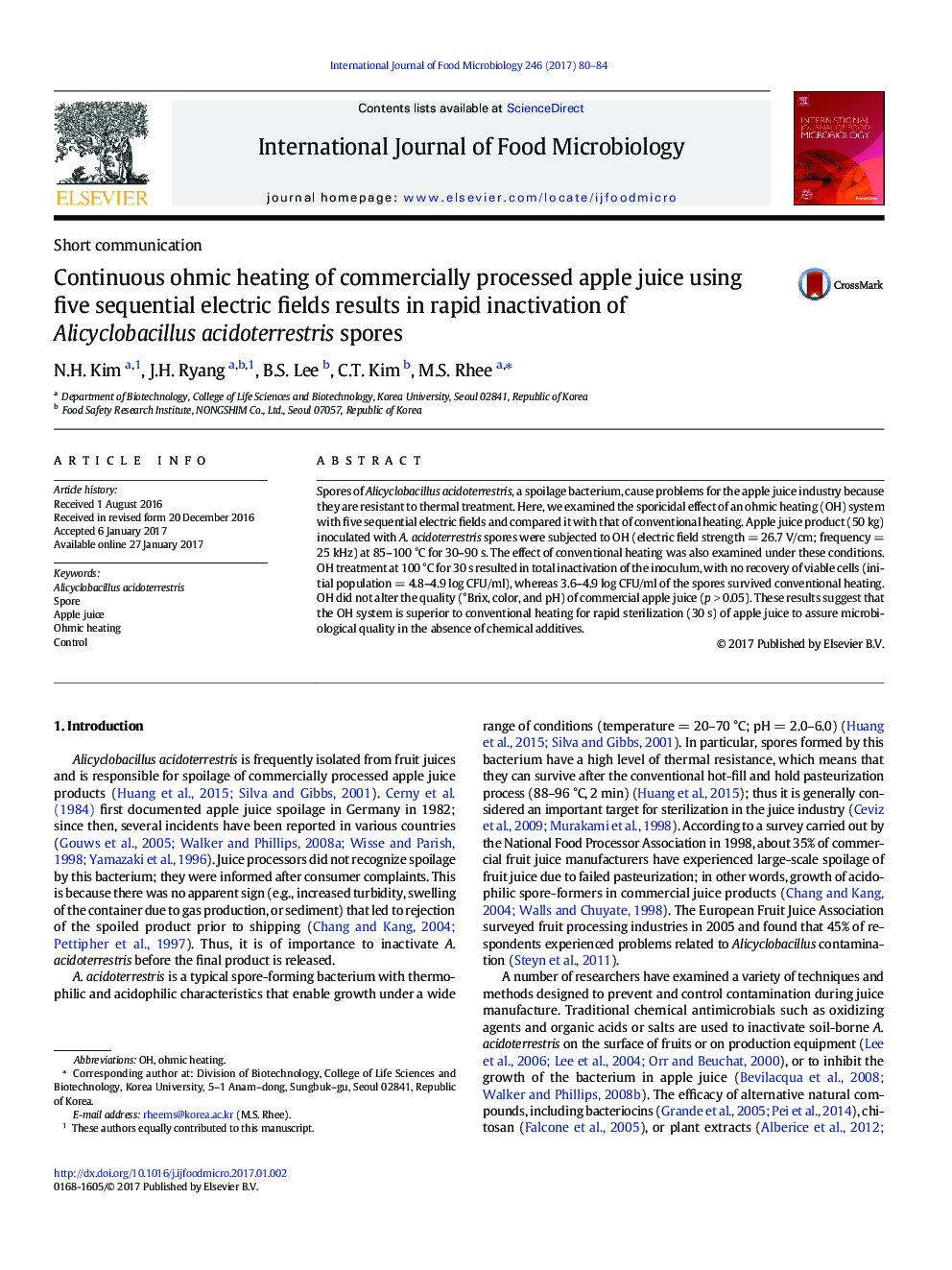| Article ID | Journal | Published Year | Pages | File Type |
|---|---|---|---|---|
| 5740862 | International Journal of Food Microbiology | 2017 | 5 Pages |
â¢The ohmic heating (OH) with five electric fields applied to commercial apple juice.â¢Sample inoculated with Alicyclobaciilus acidoterrestris spores (4.9 log CFU/ml).â¢OH at 100 °C inactivated all of the inoculum within 30 s.â¢The conventional heating at the same condition reduced only 1.1-1.5 log CFU/ml.â¢No change in °Brix, color, and pH of the OH-treated apple juice (p > 0.05).
Spores of Alicyclobacillus acidoterrestris, a spoilage bacterium, cause problems for the apple juice industry because they are resistant to thermal treatment. Here, we examined the sporicidal effect of an ohmic heating (OH) system with five sequential electric fields and compared it with that of conventional heating. Apple juice product (50 kg) inoculated with A. acidoterrestris spores were subjected to OH (electric field strength = 26.7 V/cm; frequency = 25 kHz) at 85-100 °C for 30-90 s. The effect of conventional heating was also examined under these conditions. OH treatment at 100 °C for 30 s resulted in total inactivation of the inoculum, with no recovery of viable cells (initial population = 4.8-4.9 log CFU/ml), whereas 3.6-4.9 log CFU/ml of the spores survived conventional heating. OH did not alter the quality (°Brix, color, and pH) of commercial apple juice (p > 0.05). These results suggest that the OH system is superior to conventional heating for rapid sterilization (30 s) of apple juice to assure microbiological quality in the absence of chemical additives.
